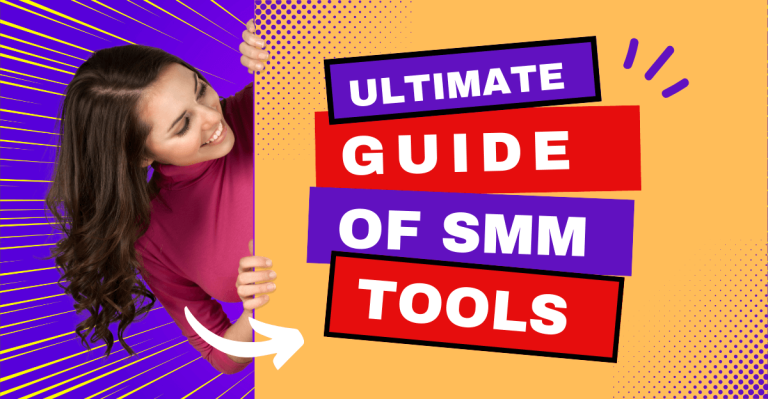Your reputation as an email sender (2/8)
Module 2 - What is the importance of your reputation as an email sender and how this affects deliverability
Depending on your reputation as a sender, email providers will either accept your incoming emails or they'll send it to die slowly in the junk mail folder.
But as the email landscape changes and the expectations of subscribers are rising, maintaining a solid sender reputation is more difficult than ever. In this section, we will analyze what determines your reputation as a sender and how to keep your relationship with your email providers at an excellent level.
Stay tuned for details on:
- Why your reputation as a sender matters
- The main factors that determine the reputation of the sender
- How to track your reputation as a sender
Why your reputation as a sender matters
Welcome to the second lesson on how to deliver your emails. In this session, we'll talk about your reputation as an email sender.
So this is an important factor that indicates to email providers whether you are following email marketing best practices.
It directly affects the deliverability of your account-which, as you now know, is your ability to reach subscribers' inboxes instead of being blocked or filtered as spam.
Email providers such as Yahoo and Gmail are primarily interested in keeping their customers happy by delivering emails they are interested in and want to interact with.
But here is the big question. How do they decide which emails to filter and which not to filter? What they do is use your reputation as a sender as a major factor in determining which envelope your emails will be delivered in, and therefore the fate of your email marketing efforts.
Volatility of your reputation
It is important to understand that the sender's reputation is not static. It is based on your subscribers' behaviour and can change with each email campaign you send. Therefore, it's important to monitor your subscribers' interaction over time to keep your reputation in good shape.
Your reputation as a sender is important because providers have to fight spam and make some tough choices about whose email to deliver to your inbox, in order to offer a good experience to their customers. This is especially true as global mail volumes increase and recipients' inboxes are flooded with emails. Message-filled inboxes mean even more competition for subscriber interaction.
The better your reputation, the higher the chance of your email being delivered to the inbox, resulting in the highest potential return on investment from the email marketing channel for your business.
Main factors affecting it

Now let's discuss some of the main factors that determine your reputation as a shipper:
Mission volume: It is important to avoid large volume fluctuations when sending emails. Sudden increases in sending volume can be seen as unwanted behaviour to providers. Whenever possible, segment your lists and send larger campaigns to the most engaged recipients first. And always make sure the volume you send comes from an IP with a good track record of deliverability. This is achieved with a consistent sending volume history and a consistently good recipient interaction rate.
Abandonment rates: Ta soft bounce and hard bounce affect your reputation. Hard bounce indicates permanent delivery failures and occurs when an email is sent to an invalid, blocked or non-existent email account. (If don't miss any of our emails, you already know that the confirmation of the recipient's email address is the solution to this). These are typically identified by a 500 (5XX) series Simple Message Transfer Protocol (SMTP) response code. A soft bounce, usually identified by a 400 (4XX) series SMTP response code, is usually temporary and may indicate that the email recipient's mailbox is full or that something else prevented the email from being delivered. Repeatedly sending to addresses that have hard bounced is one of the worst signals you can send to email providers and results in a serious degradation of your reputation.
Interaction via email: When a recipient marks you as junk mail (by sending your email to the unsolicited envelope), this negatively affects the deliverability of your account. When the recipient marks your email as "Not Spam" or "Not Junk" or moves it to an inbox, this is taken as a positive sign and will improve your reputation. Sending relevant, useful and engaging emails ensures that recipients interact with your emails, keeping your sender reputation high.
Spam traps and blocking: Maintaining a clean list of valid, loyal subscribers and staying off exclusion lists is vital to your reputation. We will discuss spam traps in the "Cleaning your email list" section, which will go into detail about the importance of maintaining a clean email list. There's also a special episode on blocklists, so stay tuned.
Shared IP or dedicated IP: Using a dedicated IP address allows you to have more control over your reputation as a sender, as it is your practices alone that determine it. In a shared IP, the actions of other senders will affect your reputation as well - for better or worse. Some ISPs or even email service providers will allow you to choose the level of shared IP you use for your sending practices. Of course, shared IP with a group of poor senders will be at a lower, less expensive level. In the platform we use there is "culling" of consignors close to your average so that you neither drop your average if you have a low open rate nor get penalized if you have a higher one.
There are a few more factors that make up your sender's reputation. Email list hygiene, subscriber loyalty, and your content and design are some that we'll touch on in later sections.
Why assume when you can be sure?
As far as your reputation is concerned, don't just assume you're in good shape - make sure! Knowledge is power. The easiest way to monitor your reputation is to regularly check your dispatcher rating for free on the home page of Senderscore.org. The sender rating is a numerical representation of your reputation. It is a value ranging from 0 to 100, with 100 being the best possible sender rating. This makes it easier to track your reputation, even when it changes. You should also closely monitor ESP data: click-through rate, unsubscribe rate, mark rate as spamming.
You should be concerned if the shipper score drops below 85. A rating over 85 is considered healthybut the top marketing teams consistently achieve sender score between 94 and 98.
Maintaining a good sender reputation is not complicated, but it does require a commitment on the sender's part in terms of specific strategies such as targeted campaigns and avoiding regular blast emailing tactics.
Some final tips
The best way to avoid complaints and maintain a good sender reputation is to follow email best practices. These include acquiring your subscribers through acceptable means of consent, clearly defining as far as your communication with your email subscribers with a timely welcome message, providing options for your subscribers to choose the type of content they want to receive and the frequency of it through a preference center, and making it easy for them to unsubscribe from your emails by making the unsubscribe link clearly visible in your email template.
Be consistent in the frequency of communication and do not drastically change the volume of your shipments from week to week or month to month. Understand how ESP processes the bounces mentioned above, remove unknown users immediately, monitor the performance of your subscriber list and use campaigns to win back inactive subscribers and if you fail, remove them. In email marketing, quantity is usually at the expense of quality. Following these basic best practices will keep you in good standing with email providers and subscribers, while keeping your emails in the inbox where they belong!
What we covered in Section Two
- The importance of your reputation as a sender for the deliverability of your emails and therefore the success of your email marketing activities.
- Them main factors that affect your reputation.
- Ways to track your score as an email sender
In the next section we have something exciting. Find out if the company's email is registered in exclusion lists.



